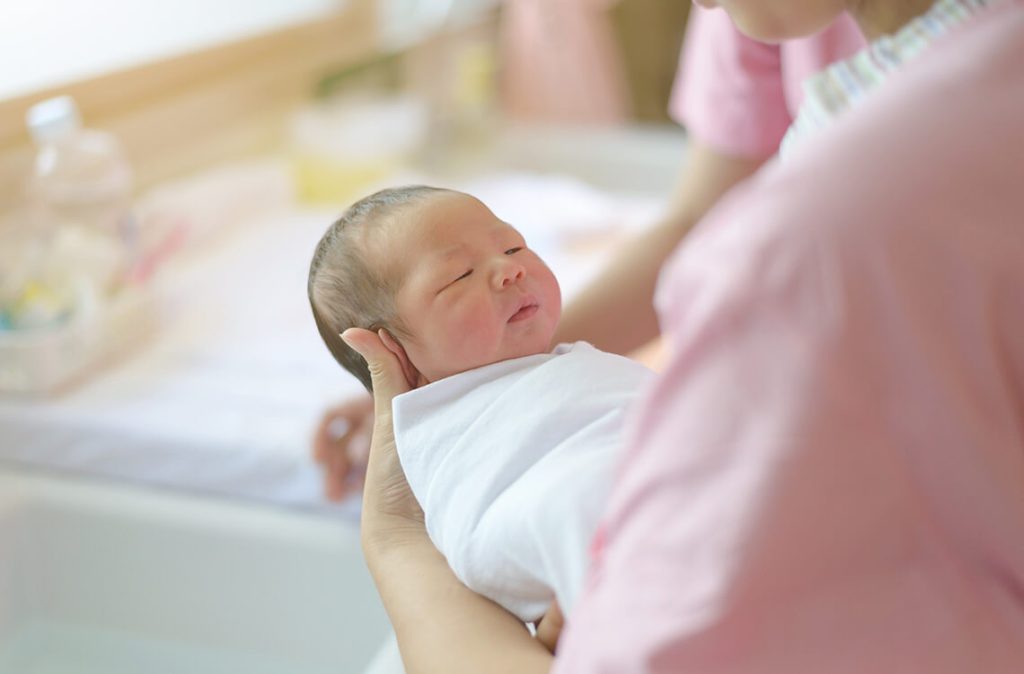No one is prepared to be a mother. You learn on the job and hope for the best.
Newborn care is an essential aspect of parenting, and it’s natural to have questions and concerns when bringing your new baby home from the hospital. Here’s a guide to help you navigate the early days of newborn care. Taking care of a newborn in the hospital is a bit different than taking care of a newborn at home.
Newborn Care at Hospital
A new mother typically spends a maximum of 3 days at the hospital after childbirth. At this stage, pretty much every part of newborn care is outsourced to the nurses.
This allows the mother to rest and recover. However, she is still asked to participate in breastfeeding and bonding. But other things like bathing, diaper changes and others are taken care of for her, among other things.
Delivery Room Care
After birth, newborns are typically placed on the mother’s chest for skin-to-skin contact, promoting bonding and initiating breastfeeding. In many Malaysian hospitals, rooming-in is encouraged, which means that newborns stay in the same room as the mother.
Apgar Assessment
Apgar scores are assigned to assess the newborn’s overall health and well-being. This includes evaluating heart rate, respiratory effort, muscle tone, response to stimulation, and skin color.
Newborn Examination
A thorough physical examination is conducted to check for any congenital abnormalities or health issues. Weight, length, and head circumference measurements are taken.
Routine vaccinations may be administered if needed. Routine procedures such as eye ointment and vitamin K injection are administered as needed.
Feeding
Hospitals in Malaysia encourage breastfeeding. Lactation consultants may be available to assist mothers with breastfeeding. For formula feeding, the hospital provides guidance on formula preparation and feeding schedules.
Newborn Screening
Some hospitals will do basic newborn screening for genetic and metabolic disorders is carried out, typically before discharge. But sometimes these disorders may fly under the radar and not be detected.
Discharge Planning
Before leaving the hospital, parents are provided with information on newborn care, including feeding, hygiene, and warning signs of common health issues.
Follow-up Care
Parents are advised to schedule well-baby check-ups with a paediatrician, usually within the first week after birth, and to keep up with the recommended vaccination schedule. The doctor may often give educational materials to parents.
Newborn Care at Home
After the mother leaves the maternity, she is pretty much on her own. This is why dad needs to pitch in because mum will still need plenty of rest. Its best when a new mother has a spouse, a confinement lady or close relative take care of her during this time. But eventually and a majority of the time, the task of newborn care will fall on the parents’ shoulders.
Feeding
If you’re breastfeeding, consult with a lactation consultant to ensure a proper latch and milk supply. If you’re formula-feeding, prepare bottles with the correct formula, and sterilise feeding equipment.
Sleeping
Babies sleep a lot, but it’s essential to create a safe sleep environment. Always place your baby on their back to sleep. Remove soft bedding, toys, and pillows from the crib. Use a firm crib mattress with a fitted sheet.
Clothing
Dress your baby in soft, breathable clothing appropriate for the weather. Check to ensure your baby is neither too hot nor too cold.
Hygiene
Newborns don’t need daily baths. 2 to 3 times a week is sufficient. Use lukewarm water and mild baby soap. Support your baby’s head and neck during the bath. However, changing diapers should be done every few hours. Change diapers frequently to prevent diaper rash. Make sure to take care of your newborns umbilical cord as well.
Handling and Soothing
Support your baby’s head and neck when holding them. Swaddle your baby if they seem to enjoy it. Gentle rocking or shushing sounds can help soothe a fussy baby.
Babies cry for various reasons – hunger, discomfort, sleepiness, or simply needing attention. Check for common issues like a wet diaper or hunger. Hold and comfort your baby if needed.
Doctor Visits
Schedule your baby’s first check-up within a week after birth. Keep up with well-baby visits and vaccinations as recommended.
Safety
Babyproof your home to prevent accidents as your child becomes more mobile. Always use an approved car seat when traveling.
Learn about Newborn Care
Remember that each baby is unique, and there’s no one-size-fits-all approach to newborn care.
Trust your instincts, get to know your baby, and adapt your care routine to their needs. Over time, you’ll become more confident and skilled at caring for your little one.
If you have specific concerns or questions, consult your paediatrician for guidance and support.
Disclaimer: The information provided in this article is for informational purposes only and should not be considered as medical advice from Motherhood. For any health-related concerns, it is advisable to consult with a qualified healthcare professional or medical practitioner.
For more insightful stories and fun recipes, stay tuned to Motherhood Story!
